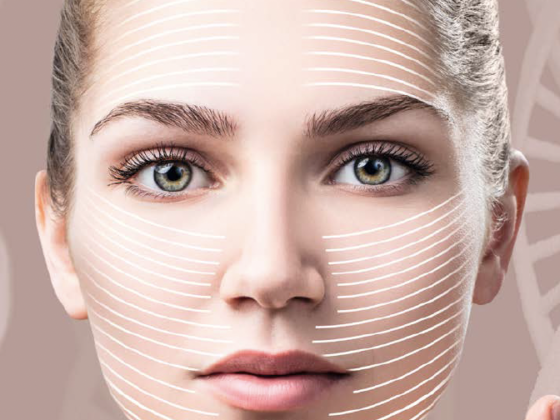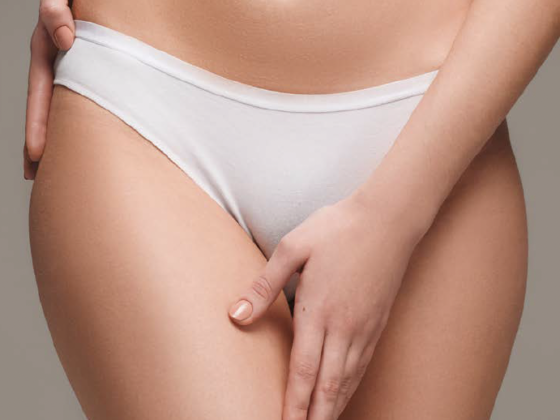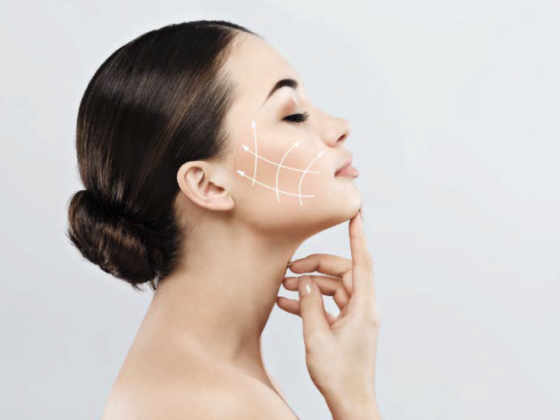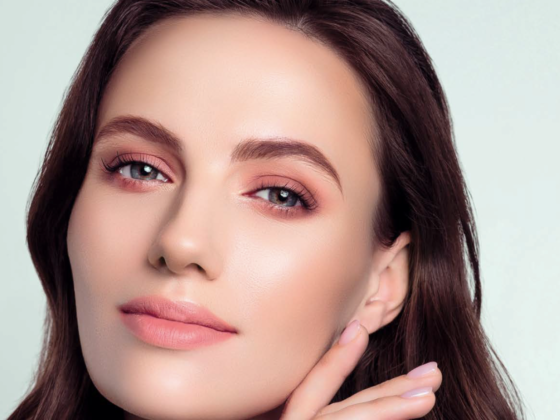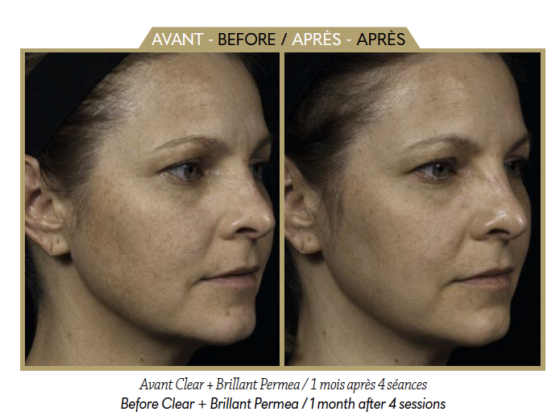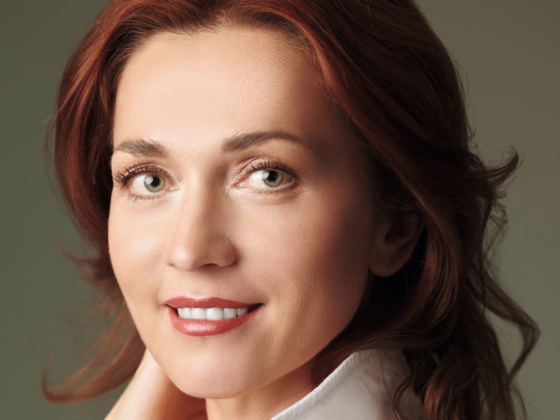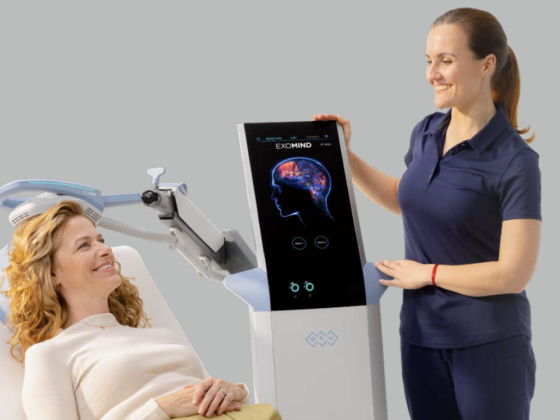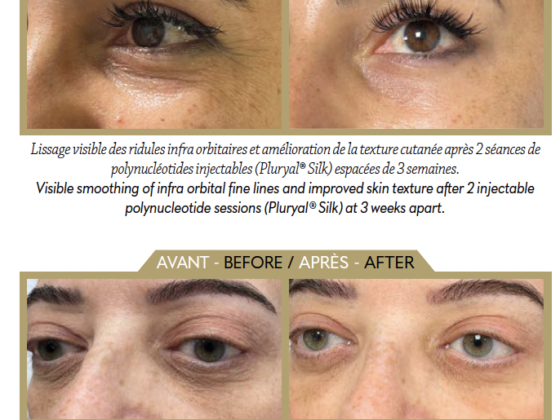Dr Sabine Dargent
As we age, our collagen-producing cells become less efficient. From age 25, we lose 1.5% of our collagen every year. At age 80, this increases to around 75%. This is age-related collagen decline.
Collagen is a protein found in the dermis, bones, tendons, cartilage, ligaments, joints and muscles. It gives structure to these tissues, providing elasticity, resistance and flexibility. To fight against collagen deficiency, we need to provide the body with the collagen it needs. Creams only have a local action on the epidermis. For a deeper effect, we need to ingest it. Collagen can be found in chicken skin, bones, fish bones, broth and food supplements. There are various types of collagen from different origins (marine, bovine). The most important thing is to take hydrolysed collagen. Collagen is a large molecule that is not easily digestible, and can only be assimilated through the wall of the intestine in its hydrolysed form. Vegetarians can take collagen extracted from egg membrane, while vegans can take supplements that support collagen production.
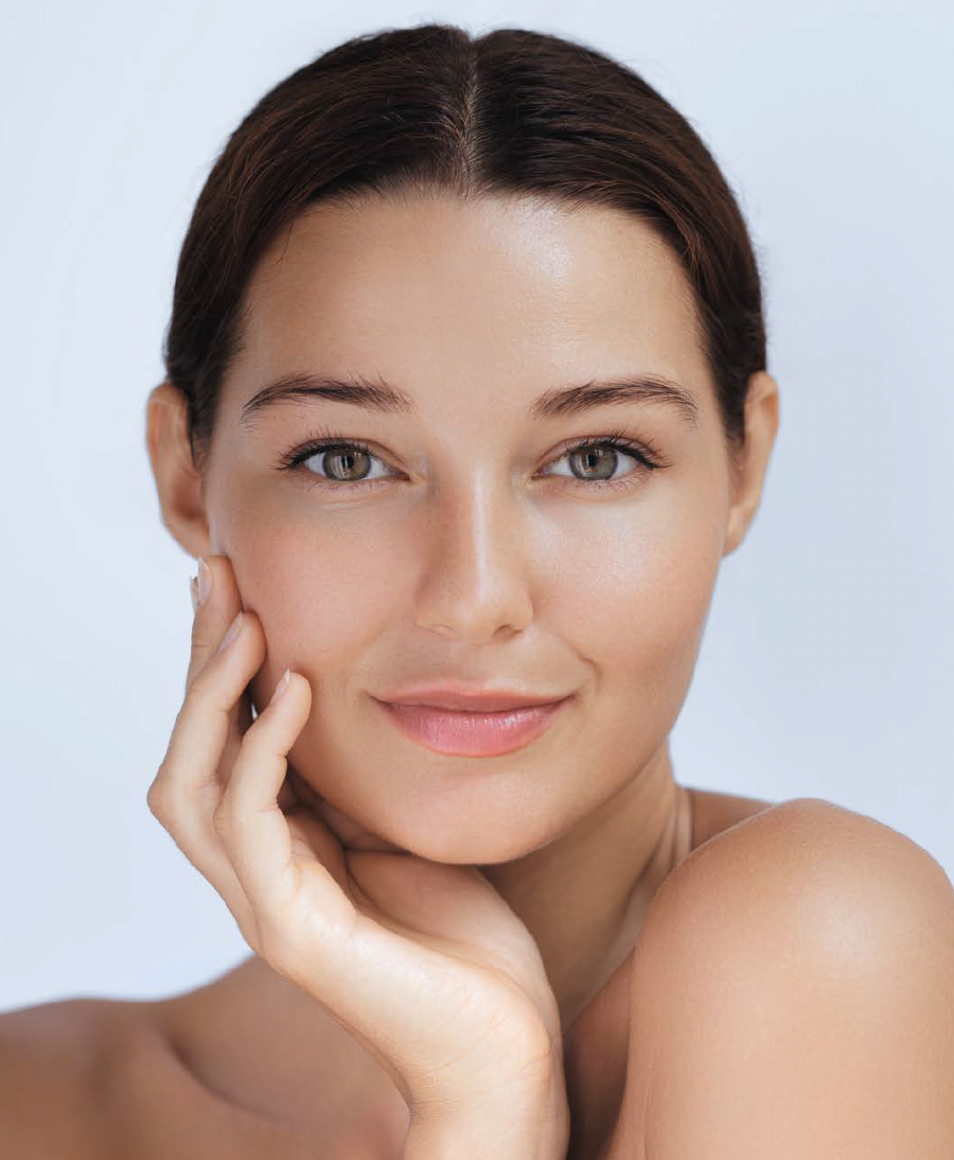
The correct dose needs to be taken. There is no set consensus, but we suggest the following:
From age 25, take 1 to 5g per day.
Between age 30 and 45, take 5 to 10g per day.
Over age 45, take 10g per day.
In the case of a bone fracture: take 20g per day to consolidate healing, then 10g for maintenance. Collagen supplements must be taken for at least three months. The first effects start to appear after one month, so taking it for just a month is not enough. A maintenance dose of three times per week is an option. There are no counterindications for taking collagen over the long term. The only undesirable side-effect, though rare, is bloating.
Why take collagen? It is the best pre/anti-aging and pro-aging tool.
Pre-aging refers to fighting aging before any signs of aging appear. It is primary prevention, or prejuvenation, and should begin, in terms of collagen supplementation, around age 25. Anti-aging refers to the measures taken to repair the signs of aging and prevent them from reappearing. It is secondary prevention using rejuvenation techniques. Pro-aging is for anyone who wants to age well without resorting to aesthetic medicine or surgery, by taking care of their health, beauty and wellbeing through diet, proper hydration, exercise, sleep and stress management.
You are in charge of the way you age. Extrinsic aging connected with gravity is corrected with hyaluronic acid injections and tensor threads.
Intrinsic aging is caused by pollution, UV rays, oxidative stress, glycation and low-grade inflammation. We can address this by:

1. Stopping smoking and reducing alcohol consumption as they oxidise collagen.
2. Including collagen-rich foods in our diet (bone broths) and foods that boost collagen production (vitamin C, zinc, copper, animal and vegetable proteins).
3. Taking omega 3 fatty acids for tissue flexibility and to reduce inflammation.
4. Reducing our intake of sugar and grilled food (barbecues, toast).
5. Drinking plenty of water to keep the skin plump and glowing.
6. Wearing sun protection.
7. Managing chronic stress and sleeping well, as a lack of sleep and high cortisol slow down collagen production.
These will help you slow down aging as well as boosting your energy and making your skin more radiant and flawless.
In addition to supplements, your doctor might recommend:
1. Topical treatments: Retinol stimulates collagen production and improves the skin texture.
2. Medical procedures:
• During menopause, hormone replacement therapy limits the loss of collagen connected with lower oestrogen levels, and collagen improves the mineral density of the bones.
• Aesthetic procedures such as:
In your thirties:
– Hydrolysed collagen supplements (5g/day)
– Fruit acid peels
– Mesolift, microneedling
– IPL or flash lamps
– LEDs
From age 40/45:
– Hyaluronic acid injections.
– Hydrolysed collagen supplements (5-10g/day)
– Fruit acid or TCA peels
– More mesolift or skinboosters
– Radiofrequency
From age 45/50 or when the skin starts to visibly sag:
– Hydrolysed collagen supplements (10g/day)
– TCA peels
– Growth factors
– Exosomes
– Fractional CO2 laser treatments
– Tensor threads
When the skin is severely wrinkled:
– Collagen inducers, which also treat lost volumes
– Phenol peels
Collagen deficiency caused by aging is a natural process. It is one of the causes and consequences of aging. Though this phenomenon is inevitable, there are effective strategies that can reduce its effects: targeted supplements, a healthy lifestyle and suitable medical treatments. Any collagen supplements should be hydrolysed and taken for at least three months. No source is deemed as universally “better”, but marine collagen stands out for its bioavailability, efficacy and lower environmental impact. Bovine collagen is particularly good for the joints and is cheaper. The choice should be made according to the patient’s objectives and medical history.
Treating age-related collagen deficiency with food supplements is an essential step in the treatment of aging. It does not replace aesthetic medicine or surgical procedures, but it does enhance their results.
Dr Sabine Dargent
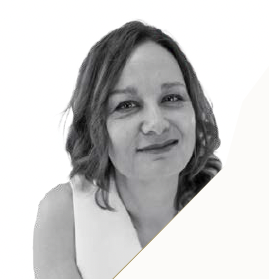
Morphological and anti-aging physician, I advocate for a holistic approach combining functional nutritional medicine, aesthetic medicine, and longevity medicine.
More: docteursabinedargent.fr



